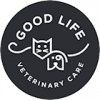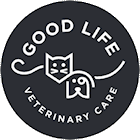Bringing a new puppy home yields so much joy…and so many challenges! Between new routines, training, frequent trips outside, and the constant attention puppies require, the puppy experience can be exhausting for new puppy families. By the time bedtime rolls around, the humans are ready to rest. But what happens if your new little furry bundle of joy won’t settle down and sleep?
Similar to babies, puppies can benefit from a nightly routine designed to help comfort them and prepare them for rest time. Getting into a night routine takes time, but laying a solid foundation of peaceful nighttime rituals is an effective long-term strategy to promote healthy sleep patterns.
Why Can’t Puppies Get Settled?
Puppies often struggle with settling down at night. This can happen for several reasons. During the first few nights in a new home, puppies may miss the comfort of their mother and littermates. Ideally, puppies spend the first 12 weeks of life with their mothers before being separated. By the end of that time, puppies should be feeling more confident, but it still takes time to adapt to the separation. Puppies need to eliminate more frequently because their bladders are small and they have not yet learned good control of urination. Generally, a puppy can hold his or her bladder for about 1 hour for each month of life. This means that a 3-month-old puppy can only be expected to go about 3 hours in between bathroom breaks, even under ideal circumstances! Finally, puppies may feel anxiety about the unfamiliar sounds and smells around them.
Addressing these challenges head-on is critical for getting your puppy settled and comfortable — and for bonding with you. Good Life Veterinary Care is here to help you navigate the home acclimation process! Our veterinarians and veterinary technicians will be more than happy to assist you and provide some additional tips to make those first few weeks a little easier.
Helping Puppies Acclimate to Their New Surroundings
Getting puppies acclimated to their new surroundings is essential. We recommend bringing puppies home for the first time early in the day to give them enough time to explore their new environment. We also suggest focusing primarily on the area where your puppy will sleep so there will be less uncertainty about that particular environment. While it’s tempting to let puppies sleep in bed with you, crate training can be instrumental for both safety and consistency. There are several kinds of dog crates available, and you may wish to spend some time experimenting to see which one will make your puppy the most comfortable.
As you probably know, puppies are bursting with energy – especially after they get comfortable with you. We always recommend for puppies to get plenty of exercise throughout the day. Puppies that don’t get regular exercise tend to sleep earlier in the day, which leaves them with excess energy at bedtime. We suggest spending 10-20 minutes every evening playing with your puppy to expend excess energy. You could, for example, go on a walk outdoors with plenty of time for sniffing, work on basic training commands, or practice fetch! It’s also really helpful to give your puppy one last chance to use the restroom before bedtime, as late as possible. Try to avoid feeding your puppy large meals close to bedtime, as this could stimulate the need to eliminate or cause some abdominal discomfort. Small snacks close to bedtime are perfectly fine.
We recommend engaging your puppy’s natural senses (licking, chewing, and sniffing) before bedtime to help create calmness. Playing gentle music or giving your pup a soft chew toy can do wonders to help promote relaxation.
Typically, puppies begin to settle down on their own when they’re around four months old. Every puppy has a different adjustment period depending on his or her demeanor and the consistency of the nighttime routine. Try to remain patient and follow the steps listed above. Remember that you can always call us at Good Life Veterinary Care with questions or concerns, or if you’re just needing some extra advice. You’ve got this.
Good Life Veterinary Care is based in Dublin, Ohio, part of the Greater Columbus area. We aim to promote health and wellbeing for your pet and enrich your bond with your furry companions.
6051 Perimeter Drive, Dublin, OH 43017
(614) 791-9191



